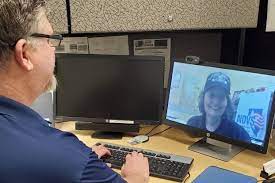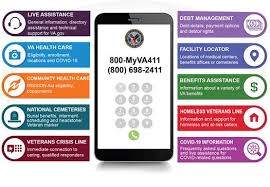Finding a VSO Representative Near Me: A Guide to Accessing Veteran Services
As a veteran, accessing the benefits and services you are entitled to can sometimes feel like navigating a maze. The good news is that you don’t have to go through it alone. The Department of Veterans Affairs (VA) has established Veterans Service Organizations (VSOs) to provide assistance and support to veterans and their families. One of the key roles of these organizations is to have VSO representatives available in various locations to help veterans access the services they need.
A VSO representative, also known as a Veterans Service Officer, is a trained professional who can guide you through the process of applying for benefits, understanding eligibility criteria, and advocating on your behalf with the VA. They are well-versed in the intricacies of veteran programs and can provide valuable insights tailored to your specific needs.
So, how do you find a VSO representative near you? Here are some steps you can take:
- Start with the VA’s website: The VA maintains a comprehensive directory of recognized VSOs on their official website. Visit va.gov and search for “VSO directory” or “Veterans Service Organizations.” This directory will help you identify organizations operating in your area.
- Local VA facilities: Another excellent resource is your local VA medical center or regional office. These facilities often have VSO representatives onsite who can provide assistance directly or connect you with nearby VSOs.
- Reach out to fellow veterans: Connect with other veterans in your community or through online forums and ask for recommendations on reputable VSO representatives near you. They may have firsthand experience working with specific individuals or organizations that they can vouch for.
- Utilize online search engines: Conduct an online search using keywords like “VSO representative near me” or “Veterans Service Officer [city name].” This simple search can yield results and point you in the right direction.
Once you have identified a VSO representative or organization, it’s crucial to make contact and schedule an appointment. During your meeting, be prepared to discuss your specific needs and provide relevant documentation. The representative will guide you through the necessary paperwork and help you understand the benefits you may be eligible for.
Remember, VSO representatives are there to assist you in navigating the system, but they do not work for the VA itself. They are independent advocates who can offer guidance and support throughout the process.
In conclusion, finding a VSO representative near you is an important step in accessing the benefits and services available to veterans. Whether it’s help with disability claims, educational opportunities, or healthcare support, these representatives can be invaluable allies on your journey. Take advantage of their expertise and ensure that you receive the assistance you deserve as a veteran who has served our nation proudly.
Frequently Asked Questions: VSO Representatives Near Me
- Should I use a claims agent or VSO?
- How do I find the VSO in my area?
- What does a VSO help with?
- Is Wounded Warrior a VSO?
Should I use a claims agent or VSO?
Deciding whether to use a claims agent or a VSO (Veterans Service Officer) is a personal choice that depends on your individual circumstances and preferences. Both options can provide valuable assistance in navigating the complex process of applying for veterans’ benefits. Here are some factors to consider when making your decision:
- Expertise and Experience: Claims agents are professionals who specialize in handling VA claims. They have extensive knowledge of the laws, regulations, and procedures related to veterans’ benefits. VSOs, on the other hand, are trained representatives from recognized Veterans Service Organizations who also have experience in assisting with VA claims. Both claims agents and VSOs can offer expertise and guidance throughout the application process.
- Accreditation: Claims agents must be accredited by the VA to represent veterans in their claims. This accreditation ensures that they meet specific standards set by the VA. VSO representatives are also accredited by their respective organizations, which have established relationships with the VA. It’s important to verify the accreditation of any claims agent or VSO representative you choose to work with.
- Cost: Claims agents typically charge fees for their services, which are usually based on a percentage of any retroactive benefits awarded to you. On the other hand, VSO services are generally provided free of charge as part of their mission to assist veterans.
- Personal Connection: Some veterans prefer working with a claims agent because they can establish a more personalized relationship and receive focused attention due to having fewer clients than a VSO representative who may have multiple cases at once.
- Availability and Location: Consider whether there are reputable claims agents or VSO representatives available in your area. Accessibility may play a role in your decision-making process.
Ultimately, it’s important to choose an option that aligns with your needs and provides you with confidence throughout the application process. Whether you decide on a claims agent or a VSO representative, both can offer valuable assistance in ensuring that you receive the benefits you are entitled to as a veteran.
How do I find the VSO in my area?
Finding a Veterans Service Organization (VSO) in your area can be done through several methods. Here are some steps you can take to locate a VSO near you:
- VA Official Website: Visit the official website of the Department of Veterans Affairs (VA) at va.gov. Search for “VSO directory” or “Veterans Service Organizations” on their site. The VA maintains a comprehensive directory of recognized VSOs, which you can use to find organizations operating in your area.
- Local VA Facilities: Reach out to your local VA medical center or regional office. These facilities often have VSO representatives onsite who can provide assistance directly or connect you with nearby VSOs. Contact their main office or visit their website for more information.
- Online Search Engines: Conduct an online search using keywords like “VSO representative near me,” “Veterans Service Officer [city name],” or “VSO organization [your location].” This search can help you find local VSOs and representatives operating in your area.
- State and Local Government Resources: Check with your state’s Department of Veterans Affairs or other relevant government agencies that provide support and services to veterans. They often have resources and information available on VSOs in your region.
- Fellow Veterans and Support Groups: Reach out to fellow veterans in your community, join veteran support groups, or participate in online forums dedicated to veterans’ issues. Ask for recommendations on reputable VSO representatives near you based on their personal experiences.
Remember, when contacting a VSO representative, it’s essential to make an appointment and come prepared with any relevant documentation related to your specific needs or claims.
Finding a VSO representative near you is an important step towards accessing the benefits and services available to veterans. These organizations are dedicated to supporting veterans and their families, providing guidance through the complexities of the system, and ensuring that you receive the assistance you deserve as a veteran who has served our nation.
What does a VSO help with?
A VSO, or Veterans Service Officer, provides assistance to veterans and their families in accessing a wide range of benefits and services. Here are some areas where a VSO can help:
- Benefits Claims: One of the primary roles of a VSO is to assist veterans in filing claims for various benefits. This includes disability compensation, pension programs, education benefits, housing assistance, vocational rehabilitation, and more. They can guide you through the application process, help gather the necessary documentation, and ensure that your claim is properly submitted.
- Appeals and Reviews: If your initial claim for benefits is denied or you disagree with a decision made by the VA, a VSO can help you navigate the appeals process. They can assist in gathering additional evidence to support your case and represent you during hearings or reviews.
- Healthcare Enrollment: VSO representatives can provide guidance on enrolling in VA healthcare programs and understanding the different options available. They can explain eligibility criteria, assist with completing enrollment forms, and address any concerns or questions you may have about accessing medical services.
- Education Benefits: Veterans often have access to educational assistance programs such as the GI Bill® or scholarships specifically designed for veterans. A VSO can explain these programs, help determine eligibility, and guide you through the application process.
- Employment Support: Transitioning from military service to civilian life can be challenging when it comes to finding employment opportunities. VSOs may provide resources on job training programs, resume building, job search strategies, and connecting veterans with employers who value their military experience.
- Financial Assistance: In cases where veterans are facing financial difficulties or homelessness, VSOs can provide information on available resources for temporary financial aid or housing support programs.
- General Advocacy: VSO representatives act as advocates for veterans within the VA system. They understand the intricacies of veteran benefits and work to ensure that your rights are protected throughout the process. They can assist with navigating bureaucratic procedures, communicating with VA officials, and addressing any issues or concerns that may arise.
It’s important to note that VSOs are not employees of the VA but are independent organizations recognized by the VA. Their services are typically free of charge, and they work diligently to support veterans in accessing the benefits and services they have earned through their service to our country.
Is Wounded Warrior a VSO?
Wounded Warrior Project (WWP) is not classified as a Veterans Service Organization (VSO) in the traditional sense. While WWP is a well-known and respected nonprofit organization that provides support and services to wounded veterans, it does not function as a VSO in terms of representing veterans before the Department of Veterans Affairs (VA) or assisting with benefits claims.
VSOs are typically recognized by the VA and play a specific role in helping veterans navigate the benefits system, providing assistance with claims, appeals, and other related matters. These organizations often have trained Veterans Service Officers who work directly with veterans to help them access the benefits they are entitled to.
That being said, Wounded Warrior Project offers a range of programs and services aimed at supporting wounded veterans in their physical and mental health recovery, career transition, education, and other areas. They provide resources, advocacy, and community engagement opportunities for wounded veterans and their families.
While WWP may not be considered a VSO in the traditional sense, they are still an important organization that supports and empowers wounded veterans on their journey to recovery. If you are seeking assistance specifically related to VA benefits or claims representation, it is recommended to reach out to recognized VSOs or Veterans Service Officers who specialize in those areas.




